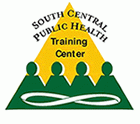
Family Advocacy and Involvement in Title V Programs
Course Description:
Collaboration between Title V Maternal and Child Health Programs and family leaders provides a “win-win” opportunity to leverage programmatic expertise with families as an action arm for advocacy. Program faculty will discuss appropriate roles for family advocates and describe the nuts and bolts structure and organization for how Title V programs can meaningfully operationalize their involvement. Faculty will also include a discussion of the skills and training family advocates need to be successful as well as examples of successful models for partnership between family advocates and Title V Maternal and Child Health Programs.
Note: This course was originally delivered as a satellite broadcast.
Target Audience
Academic Faculty/Staff, Federal Government Employees, State Government Employees, Local Government Employees, Non-Government Employees and Students
Learning Objectives
- Describe the benefits of partnering with families, including advocacy for Title V programs, and supporting maternal and child health policy
- Discuss appropriate roles for family advocates and how Title V programs can operationalize their involvement
- Discuss what skills and training family advocates need to be successful in partnership with Title V programs
- Provide examples of successful models for partnership between family advocates and Title V Maternal and Child Health Programs
Instructor:

Rylin Rodgers, BA
State Coordinator
Family Voices Indiana
Family Discipline Coordinator
Riley Child Development Center
Lebanon, Indiana
Available Credit
- 2.00 Participation/CETulane Professional and Continuing Education (PaCE) awards 2.00 hour(s) of credit for completing Family Advocacy and Involvement in Title V Programs
Price
Required Hardware/software
System Settings
This course is designed to work most effectively if your computer and internet connection meet certain minimal requirements. This course can be accessed using a Windows 10 PC or a Mac with High Sierra1, Mojave, or Catalina. Pop-up blockers should be disabled when viewing the course. Internet Explorer 11 (for Windows 10), or the current version of Google Chrome, Mozilla Firefox, or Apple Safari (for Windows 10 and or Mac) is required. Many of our courses require Java and JavaScript enabled.
Links to External Websites
Links to websites outside this course will open in a new window or tab. Some browsers may minimize the course window. If this occurs, maximize the course window to return to the course.
Adobe Acrobat Reader (for desktops and laptops)
Adobe Acrobat Reader is required to access some documents in this course. If you need to download a free copy of Acrobat Reader, click here.
Internet Connection Speed
A minimum download speed of 1.5 Mbps is recommended for an optimal experience, which is commonly the speed associated with a basic DSL or a cellular/satellite connection. A faster connection, such as cable or fiber service, with further enhance your online experience. A Wi-Fi connection is generally acceptable, but it is dependent upon one of the two services mentioned above. You can check your internet connection speed at http://www.speedtest.net/.

 Facebook
Facebook X
X LinkedIn
LinkedIn Forward
Forward